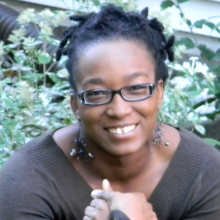
Genevieve Ali

My research focuses on process hydrology, notably on how water (and what it carries) moves within and between different landscape compartments (i.e., soil, plants, wetlands, rivers). I combine field, big-data mining, numerical mapping, and numerical modeling approaches to study hydrological processes from the plot scale (1 m by 1 m) to the large (transboundary) watershed scale. While I typically use concepts and tools from several hydrology sub-disciplines (e.g., ecohydrology, hydrobiogeochemistry, and hydropedology), I also enjoy borrowing tools from other disciplines such as ecology, computer science or brain neuroscience to apply them to hydrological questions. I work not only in forested environments but also in landscapes where natural hydrological processes have been significantly altered by human activities or human infrastructure. One major thrust of my research is the characterization of ecohydrological systems as highly connected and complex systems, to improve our understanding of water dynamics in the context of land use change and climate change.
- B.Sc. Honors Environmental Geography, University of Montreal (2005)
- Ph.D. Environmental Geography, University of Montreal (2010)
- *Haque, A., Ali, G., and Badiou, P. (2022). ‘Event-based analysis of wetland hydrologic response in the Prairie Pothole Region’. Journal of Hydrology, doi: 10.1016/j.jhydrol.2021.127237.
- *Ross, C., Ali, G., Spence, C., and Courchesne, F. (2021). ‘Evaluating the Ubiquity of Thresholds in Rainfall-Runoff Response Across Contrasting Environments’. Water Resources Research, doi: 10.1029/2020WR027498.
- *Pokorny, S., Stadnyk, T., Ali, G., Lilhare, R., Déry, S., and Koenig, K. (2021). ‘Cumulative Effects of Uncertainty on Simulated Streamflow in a Hydrologic Modeling Environment’. Elementa: Science of the Anthropocene, doi: 10.1525/elementa.431.
- King, A. E., Ali, G., Gillespie, A. W., and Wagner-Riddle, C. (2020). ‘Soil organic matter as catalyst of crop resource capture’. Frontiers in Environmental Science, section Soil Processes, doi: 10.3389/fenvs.2020.00050
- Ali, G., and *English, C. (2019). ‘Phytoplankton blooms in Lake Winnipeg linked to selective water-gatekeeper connectivity’. Scientific Reports, 9: Article number: 8395, doi: 10.1038/s41598-019-44717-y.